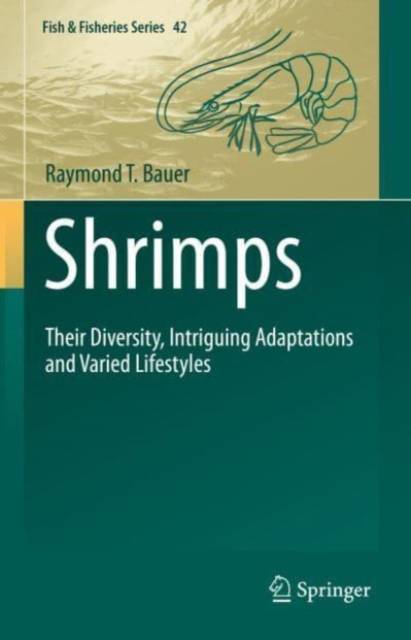
- Retrait gratuit dans votre magasin Club
- 7.000.000 titres dans notre catalogue
- Payer en toute sécurité
- Toujours un magasin près de chez vous
- Retrait gratuit dans votre magasin Club
- 7.000.0000 titres dans notre catalogue
- Payer en toute sécurité
- Toujours un magasin près de chez vous
Description
This book explores the biology of decapod shrimps, a group of animals known to most people as a nutritious and tasty food item. Shrimps are amazingly diverse in size, shape, coloration, behavior and natural history. Shrimp fisheries and aquaculture are a vital part of the USA and world economies. These crustaceans are key ecological and food-web components of marine and freshwater habitats. The book synthesizes information on the taxonomic and ecological diversity of shrimps, the structure and function of shrimp anatomy, antifouling adaptations, coloration and camouflage, reproductive biology, sexual systems, mating systems and behavior, life history strategies, symbioses between shrimps and other organisms, shrimp fisheries and aquaculture, as well as the evolution and phylogeny of shrimps. All chapters are written within an adaptational and evolutionary perspective. Important questions about shrimp biology are asked, and hypotheses for testing in future research are proposed. Thebook is spiced up with personal anecdotes and observations from the author's research experiences.
This book is intended as a comprehensive reference, a "go to" book about the biology of shrimps. The text is scientifically rigorous but written in a style intended for a varied readership. Thus, the book is a valuable resource for budding or working research scientists such as zoologists, aquatic biologists, fisheries and aquaculture professionals, as well as amateur naturalists, aquarium hobbyists and interested laypersons. As the saying goes, "a picture is worth a thousand words," so that the book is amply illustrated with figures and diagrams.The numerous color plates, composed of photos contributed by expert colleagues, make the world of shrimps come alive.
Spécifications
Parties prenantes
- Auteur(s) :
- Editeur:
Contenu
- Nombre de pages :
- 720
- Langue:
- Anglais
- Collection :
- Tome:
- n° 42
Caractéristiques
- EAN:
- 9783031209659
- Date de parution :
- 09-04-23
- Format:
- Livre relié
- Format numérique:
- Genaaid
- Dimensions :
- 160 mm x 238 mm
- Poids :
- 1383 g

Les avis
Nous publions uniquement les avis qui respectent les conditions requises. Consultez nos conditions pour les avis.






